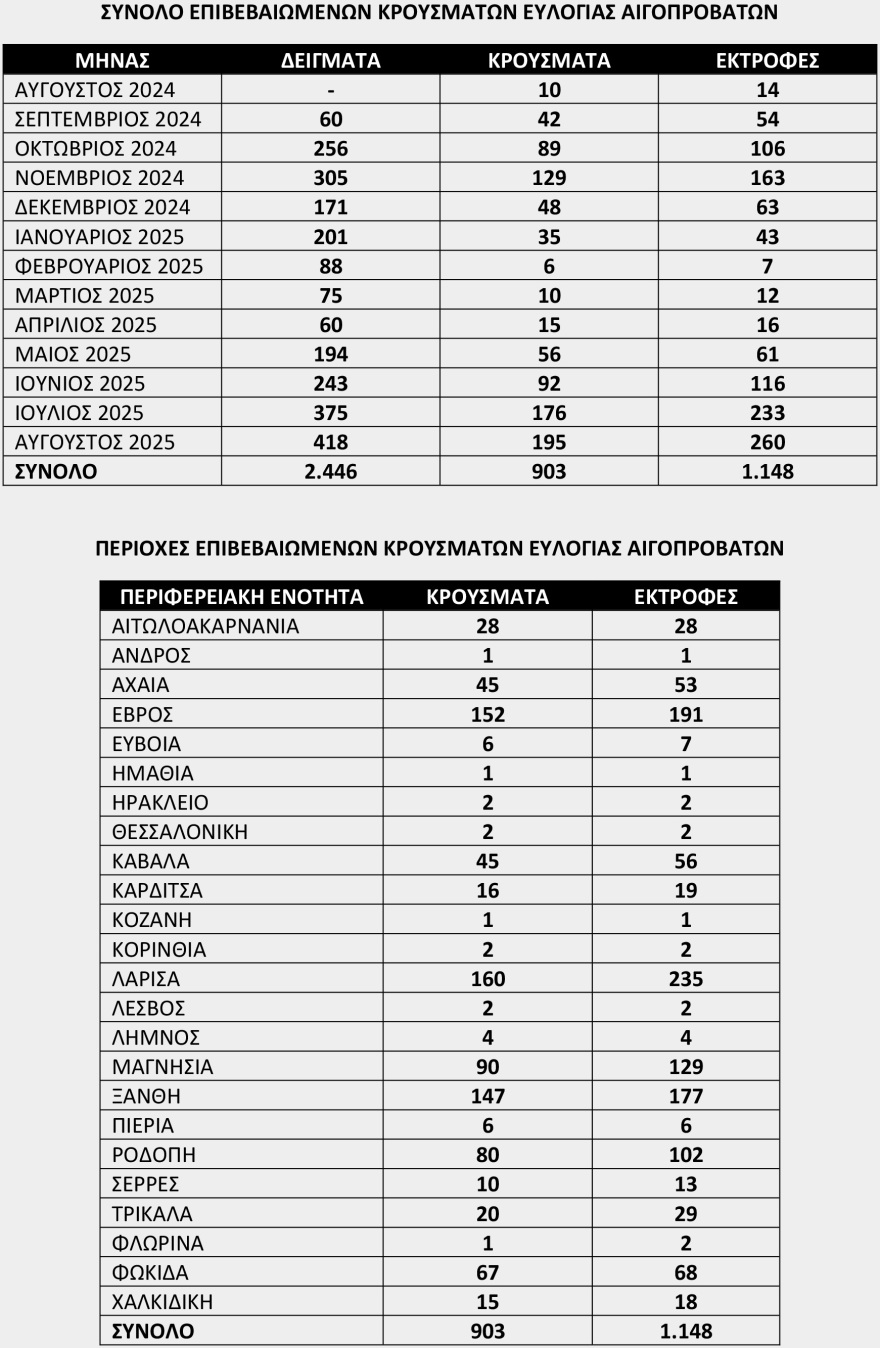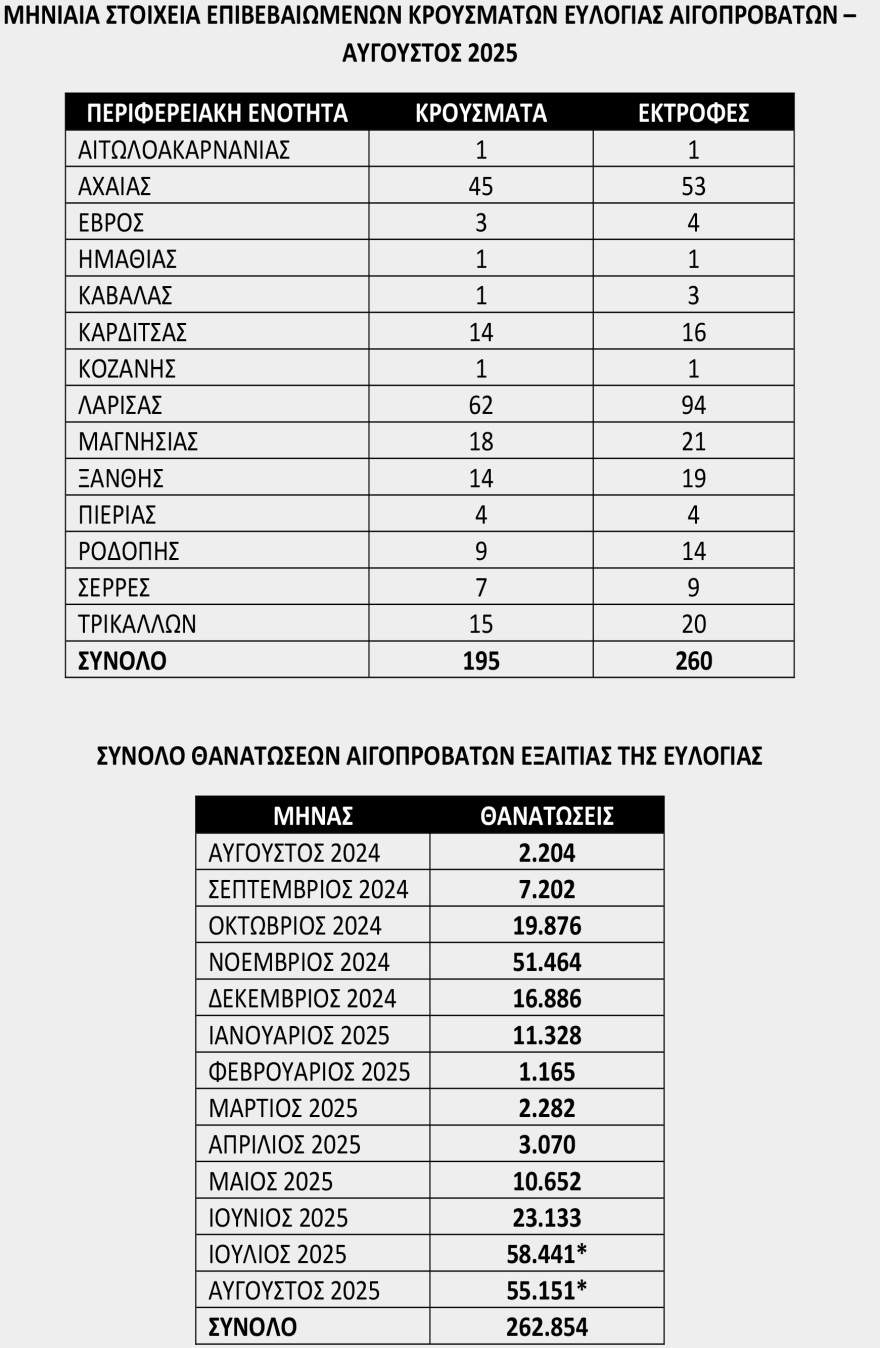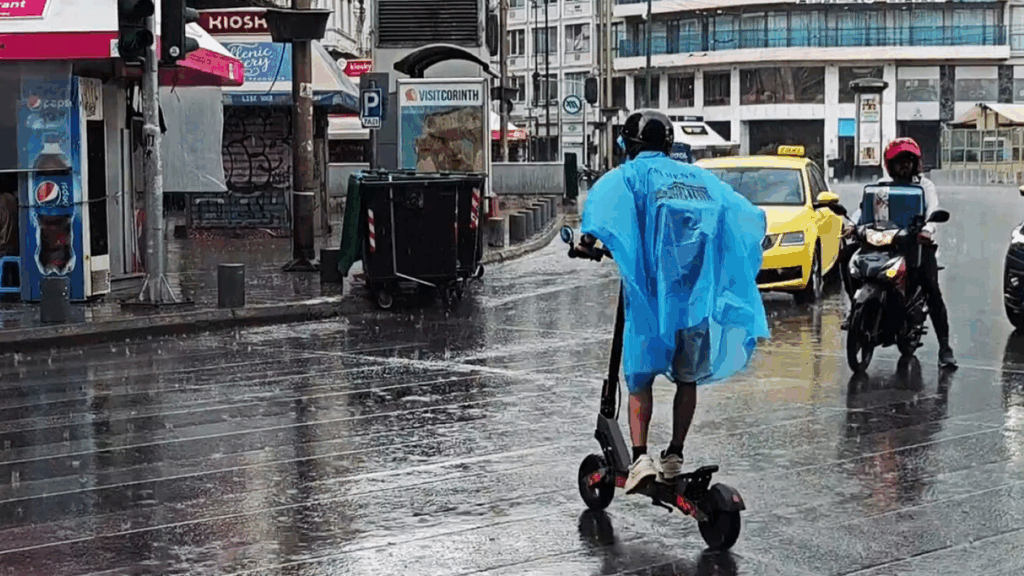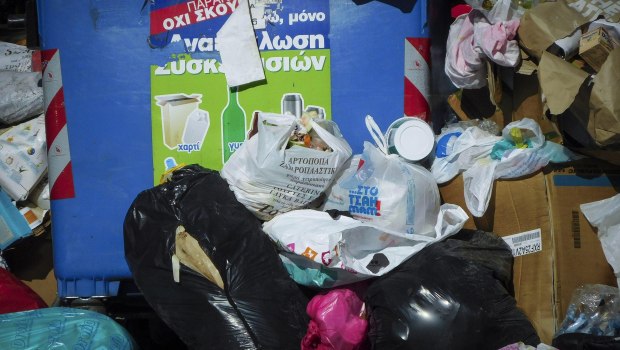“Ten-Day War” to halt the spread of sheep and goat pox – “We risk a lockdown,” said Tsiara
Source: ProtoThema English
The Ministry of Rural Development and Food has placed the country on operational readiness following a meeting chaired by Minister Kostas Tsiaras with Regional Governors, focusing on the response to sheep and goat pox.
According to the plan, for the next ten days, a unanimously approved action plan will be implemented, which will include the presence of Ministry veterinarians in the field, intensified on-site inspections, and encouraging livestock farmers to comply with and implement biosecurity measures. Simultaneously, disinfection stations will be immediately established on main roads and key routes for the movement of live animals, animal feed, and milk. The presence of the teams will be continuous, aiming for full control and effective enforcement of the measures.
As emphasized during the meeting, this is a “ten-day assault,” with the full on-site presence of all Ministry personnel, with the sole goal of immediately halting the spread of the disease.
During his address, Minister of Rural Development and Food Kostas Tsiaras clarified that this is a zoonotic disease that is not easily controlled, and therefore, no one is dispensable in this battle. He stressed the goal of creating a strong framework for combating the disease and highlighted the need to strengthen biosecurity measures, warning that “otherwise we will face a lockdown.” He added:
“The issue is that, where we stand now, we must cooperate. The Regions, as responsible for enforcing measures, and all stakeholders must adopt an entirely different approach to tackle the pox. It is an effort for all of us to take a collective step to close this chapter.”
It should be noted that, if a lockdown decision is made, all movements of sheep and goats within Greek territory will be prohibited, and the animals will remain in their stables. Practically, this means that milk and meat production will not reach the market, although current quantities are already reduced. However, the cost for farmers, given the damage the sector has already suffered, is significant.
According to data released by the Ministry, over the past year, more than 262,000 sheep and goats have been culled due to the disease, corresponding to 3% of the livestock population.
See the tables with confirmed cases and animal culling


After the meeting, Minister Kostas Tsiaras stated:
“As you know, we have been facing sheep and goat pox for a long period, which poses a major threat to the country’s livestock. Just recently, we had the opportunity to hold an extensive meeting with the participation of several Regional Governors, thematic Deputy Governors, and, via videoconference, several others, to coordinate actions that will allow us to contain the disease as quickly as possible.
The truth is – since all issues were discussed – we identified the points that need to be highlighted so that the results of this effort are the best possible.
Therefore, we jointly decided – primarily along specific axes: to mobilize all the forces at the Ministry of Rural Development – and I mean veterinarians – so that in the next ten days, through their on-site presence, in cooperation with the veterinarians of the Regional Directorates of Agriculture, they will intensify field inspections and encourage livestock farmers to comply with and implement biosecurity measures.
Second, to establish disinfection stations on major road axes, especially in Regions currently affected by the disease.
Third, through the disinfection process, to create the possibility of issuing a specific certificate that will allow farmers to deliver milk while ensuring biosecurity measures.
Many other issues were discussed, such as imposing quarantine for imported animals to minimize the risk of transmitting the virus. Also, the possibility of providing farmers with disinfectants via the Regions, to further strengthen the framework and level of biosecurity in combating sheep and goat pox.
I believe we are on a positive path, and with the cooperation of all Regional Governors – whom I thank personally – and the contribution of everyone here at the Ministry, we are taking a truly significant step to address a zoonotic disease that poses serious challenges and particularities.”
Regional Governor of Thessaly Dimitris Kouretes emphasized: “I think today’s meeting was extremely useful. The decisions were unanimous among all Regional Governors. These are the decisions the Minister mentioned, and I believe this is the model that was once successfully used during the plague. This is a war, and in war, we are all together. We hope that in the coming period we can control the disease. This is a unanimous decision of all Regional Governors.”
Regional Governor of Epirus Alekos Kachrimanis noted: “Our region does not currently have the disease, but we must protect our area and the farmers who may move from mountainous to lowland areas. The discussion was very productive, and the fact that we all agreed during this emergency period is very positive.”
Deputy Regional Governor of Agricultural Economy of Central Macedonia Georgios Kefalas said: “Today’s meeting was extremely useful. We reached unanimous conclusions. As previous speakers said, we are at war, so we are all using every means to address the urgent threat of the disease.”
The meeting was attended by Deputy Ministers Christos Kellas and Giannis Andrianos, General Secretaries Spyros Protopsaltis and Antonis Filippis, Regional Governors Dimitris Kouretes (Thessaly), Christodoulos Topsis (Eastern Macedonia and Thrace), Alexandros Kachrimanis (Epirus), Stavros Arnaoutakis (Crete), Deputy Regional Governors Giorgos Kefalas (Central Macedonia), Kostas Apostolopoulos (Central Greece), Prodromos Gaitanidis (Epirus), Andreas Filias (Western Greece), Philemon Zannetidis (South Aegean), General Director of Veterinary Services Aikaterini Marinou, and other officials. Via videoconference, Regional Governor Giorgos Amanatidis (Western Macedonia) and Deputy Regional Governors Stavros Tzedakis (Crete), Anastasia Antoneli (North Aegean), and Konstantinos Tsirigotis (Ionian Islands) also participated.
Ask me anything
Explore related questions
The original article: belongs to ProtoThema English .




